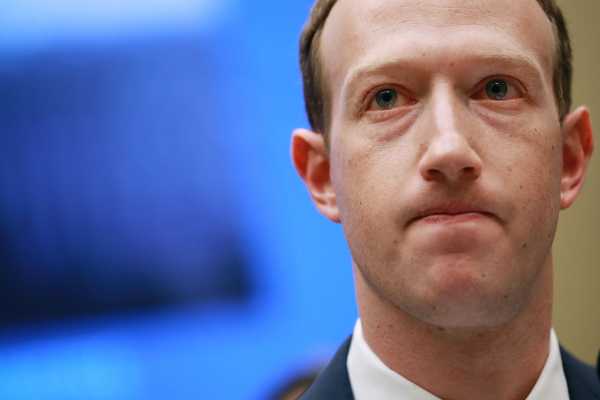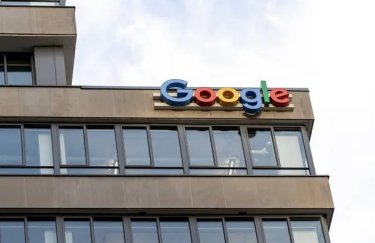
Facebook, in an effort to deal with the fake news crisis, has given five news outlets the power to block the spread of articles they deem “false” on Facebook — empowering them, in essence, to act as the social media giant’s censors. They are the Associated Press, FactCheck.org, Snopes, PolitiFact, and the Weekly Standard: four nonpartisan outlets and one conservative one.
On Tuesday, this arrangement blew up in Facebook’s face.
Last week, the liberal publication ThinkProgress published a piece on Supreme Court nominee Brett Kavanaugh’s confirmation hearing with the headline “Brett Kavanaugh said he would kill Roe v. Wade and almost no one noticed.” The fact-checker for the Weekly Standard ruled it was false. Facebook’s punishment mechanism kicked in, and the ThinkProgress article was cut off from being seen by about 80 percent of its potential Facebook audience.
On Tuesday, the author of the ThinkProgress piece — editor Ian Millhiser — publicly defended the thesis of his piece and accused Facebook of “pandering to the right” by allowing a conservative magazine to block liberal articles. The stakes here are high: Facebook provides about 10 to 15 percent of ThinkProgress’s traffic, which means that getting choked off from readers there is a nontrivial hit to its readership.
This is a mess. I’m inclined to be sympathetic to ThinkProgress — I worked there between 2012 and 2014, and Millhiser is a friend. The claim in the article itself, that Kavanaugh had all but openly said he would vote to repeal Roe v. Wade during his testimony, was defensible, and both conservative and liberal legal scholars find the legal analysis underpinning Millhiser’s piece sound.
But the headline really is too far: Kavanaugh did not literally say he would overturn Roe, and a lot of readers don’t get past the headline. Many people probably saw that and left with the impression that Kavanaugh said words in his testimony that he didn’t.
The real lesson here of the ThinkProgress-Weekly Standard spat is that Facebook has no idea how to handle the fact that a massive percentage of political discourse takes place on its platform, and the solutions it’s testing are creating new and dangerous problems. The debate over Kavanaugh illustrates that our public discourse is in the hands of people who have no idea how to manage it responsibly.
The ThinkProgress-Weekly Standard feud is less about facts and more about abortion rights
The dispute between the two publications centers on Kavanaugh’s testimony on something called the Glucksberg test, a legal doctrine established in the 1997 Supreme Court ruling in Washington v. Glucksberg. The test is used to determine whether a right not explicitly mentioned in the Constitution is still, nonetheless, constitutionally protected — an “unenumerated right,” in legal parlance. Under the Glucksberg test, an unenumerated right is protected by the Constitution if it is “deeply rooted in this Nation’s history and tradition.”
For complicated legal reasons, the Glucksberg test is not currently used to evaluate abortion rights. However, in his testimony, Kavanaugh said that “all roads lead to the Glucksberg test” when it comes to evaluating unenumerated rights. This matters because in a 2017 speech, Kavanaugh openly stated that the decision in Roe would not pass the Glucksberg test — presumably because a right to abortion is not “deeply rooted” in American tradition, by his measure.
“Even a first-year law student could tell you that the Glucksberg’s approach to unenumerated rights was not consistent with the approach of the abortion cases such as Roe vs. Wade in 1973,” Kavanaugh said in an address to the conservative American Enterprise Institute.
For this reason, Millhiser argues, it’s fair to say that Kavanaugh committed to overturning Roe v. Wade in his testimony. “Judge Kavanaugh appears to be telegraphing his belief that Roe [was] not correctly decided,” he writes.
The Weekly Standard’s fact-check does not actually dispute any of this analysis, either of Kavanaugh’s testimony or of the Glucksberg test itself. Instead, it argues that the headline of Millhiser’s piece — “Brett Kavanaugh said he would kill Roe v. Wade last week and almost no one noticed” — is flatly false because Kavanaugh never openly said he would vote to overturn Roe.
“While ThinkProgress engages in an argument to suggest how Kavanaugh might vote in a Roe v. Wade redo, the article does not provide evidence that ‘Kavanaugh said he would kill Roe v. Wade,’” the Weekly Standard’s Holmes Lybrand writes. “This is not to suggest how the candidate might vote in the hypothetical court case, but simply to clarify that Kavanaugh has not said he would vote to ‘kill’ the court’s decision regarding Roe v. Wade.”
Millhiser’s response is that he didn’t mean the word “said” literally. “According to Merriam-Webster’s dictionary, the verb ‘say’ or ‘said’ can mean to ‘indicate,’ ‘show,’ or ‘communicate’ an idea,” he writes. “Our argument is that Kavanaugh indicated, showed, or communicated his intention to overrule Roe when he endorsed the Gluckberg test after saying that Gluckberg is inconsistent with Roe.”
But when you use the word “said” in an article about oral testimony, it typically means that the candidate literally said the words you’re attributing to him out loud. And headlines really matter: People skimming through their newsfeed only occasionally click past the headlines. An ordinary person who saw Millhiser’s article on their Facebook feed would likely conclude that Kavanaugh had openly vowed to overturn Roe V. Wade, which makes the headline problematic even if it wasn’t intended to be literal.
That being said, a misleading headline is not grounds for labeling an entire article false and punishing the publication accordingly. Instead of ThinkProgress getting a warning from Facebook and having an opportunity to rewrite the headline, the article got hit with the Facebook equivalent of the death penalty.
This decision is especially troubling because Millhiser’s substantive argument is at the very worst debatable, and at best a valuable contribution to public discourse that cuts through the kabuki theater of a Supreme Court nomination.
Because of the narrow Republican majority in the Senate, and a few crucial Republican senators, Kavanaugh would likely not be confirmed if he explicitly said he would vote to overturn Roe. He therefore has an incentive to dance around the topic, using dog whistles that social conservatives will pick up but centrist senators can ignore. References to Glucksberg could plausibly fit that role.
And that’s what’s really going on in this debate. Liberals want to make it as clear as possible that Kavanaugh will likely vote to overturn Roe, as doing so will make it harder for him to be confirmed. Conservatives want to downplay the nominee’s social conservatism so he can make it past the Senate. The target audience for these articles is moderate senators: Millhiser’s original piece is subtitled “please pay attention, Susan Collins.”
So the dispute here isn’t actually about facts, but rather about how best to spin Kavanaugh’s public record to advance or defeat his nomination. The stakes in this fight are massive — the future of abortion rights in America — which naturally leads partisans to amp up the rhetoric, overstating the conclusiveness of an interpretation of testimony or labeling this debatable interpretation as flatly false.
Which makes it all the more strange that Facebook would empower a conservative outlet to censor liberals on its platform.
Facebook’s fact-checking problem, explained

Facebook’s fact-checking unit is outsourced to the Weekly Standard’s Fact-Checker and his four nonpartisan peer outlets. I say “his” because the Weekly Standard’s Fact Checker is not a division of the publication but rather one man — Holmes Lybrand, a conservative journalist who graduated college in 2016.
Sometimes Facebook flags articles to be reviewed by its partner fact-checkers. Sometimes the fact-checkers bring an article to Facebook, telling them it’s false. The fact-checkers write an article explaining their ruling, and then Facebook punishes an article if it’s false. According to Facebook product manager Tessa Lyons, a publication that repeatedly publishes articles determined to be “false” will be punished more severely: Facebook will “cut off their ability to make money or advertise on our services.”
Facebook told Millhiser that partner outlets have nearly unchecked power to block traffic to an article deemed false. “A Facebook employee responded by email that Facebook defers to each independent fact-checker’s process and publishers are responsible for reaching out to the fact-checkers directly to request a correction,” Millhiser explains.
The purpose of this process is, explicitly, fighting back against fake news spread for political purposes (like, say, swinging the 2016 election).
“False news is a moneymaker for spammers and a weapon of state actors and agitators around the world,” Lyons explains. “Misinformation is bad for our community and bad for our business. It’s why we’re investing significant time and resources to fight it.”
But the effect of the policy is to empower one relatively young, conservative writer to unilaterally choke off traffic to liberal articles he deems false. The only appeals process is to his editors, the staff of an explicitly ideological outlet.
It’s not a mark against the Weekly Standard in particular to say this is a troubling state of affairs. Liberals and conservatives will disagree on certain factual issues, and the rulings of a fact-checker housed at an explicitly conservative outlet will reflect that split. Journalistic fact-checking in politics is sometimes straightforward — Barack Obama was clearly born in Hawaii— but oftentimes more complex, assessing ideologically fraught claims like whether a particular Democratic candidate can be fairly described as a “socialist.”
It’s fine for fact-checkers to wade into difficult territory. But everything changes when that ruling can affect a publication’s ability to reach a mass audience on social media, and thus its revenue.
Facebook is ultrasensitive to charges of liberal bias, stemming back to a somewhat misleading Gizmodo article from 2016 in which former Facebook staffers allege liberal bias at the publication’s news team. This controversy hasn’t gone away; a House hearing this July focused heavily on the company’s supposed liberal bias.
Facebook saw including the Weekly Standard in its fact-check as a way of dealing with this problem. Quartz reported in December, when Facebook started working with the Weekly Standard, that “ the partnership … is part of Facebook’s attempt to ‘appease all sides.’”
But there are no explicitly liberal publications included in Facebook’s fact-check process — no equivalent to the Weekly Standard, which covers American politics from an explicitly conservative perspective.
The whole thing is American politics in microcosm: A change intended to make political discourse more fact-based instead became another place for the right to attack the supposedly liberal establishment. Except Facebook gave them a real weapon with which to do so.
The underlying problem: Facebook is clueless about politics
Facebook’s design and huge user base makes it a natural place for people to conduct political conversation, sharing their opinions and news articles.
When unscrupulous fake journalists and foreign powers abuse this design to spread false information — polluting the public square swiftly and efficiently for political gain — Facebook has an obligation to act, though it has historically dragged its heels.
But the company has no idea how to do so without making conservative partisans angry, and the site’s leadership seems allergic to allegations of political bias. The bigger problem here is that Facebook does not understand the media and political landscape it’s playing in. It certainly hasn’t grappled with the very long history of conservatives using allegations of bias to discredit neutral media and elevate their own perspective.
Outsourcing your censorship decisions to trusted journalists seems like a good idea in theory. The problem is that journalists and partisans strongly disagree about whose fact-checks to trust and, at times, what the facts are in certain cases. No matter whom you end up empowering, you will be accused of ideological bias by someone. Indeed, when Facebook only worked with nonpartisan fact-checking outlets, a Breitbart article accused the site’s partners of having “records of left-wing partisanship.”
This is an awkward position for Facebook to be in, and it’s largely the site’s own fault. Facebook’s business model is to be a place where people connect with each other and share their lives. Many people’s lives and vital concerns include politics. There is no way that Facebook in its current iteration, defined by status updates and posts, could exist without becoming a major site for political discourse.
This means that Facebook has put itself in a position where it needs to regulate speech unless it wants to be a venue for falsehoods to spread uncontrollably. Given the political context — one in which America’s most prominent conservative, President Donald Trump, is lying more than any other past president — the matter of policing discourse will be ideologically charged even when it comes to basic facts. Facebook needs a deep understanding of the politics and media worlds to grapple with this landscape.
Sometimes Facebook gets it right (its decision to ban conspiracy theorist Alex Jones from the platform, for example). But overall, the tech giant’s fundamental business model forces it to try to make complex decisions about free speech and the spread of information that its leadership simply does not seem to have the expertise or political savvy to make. That’s a recipe for disaster.
Sourse: vox.com





